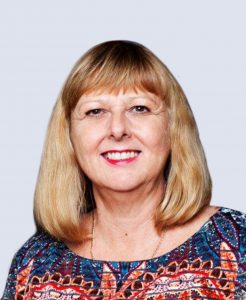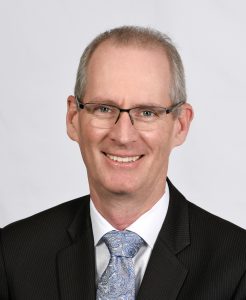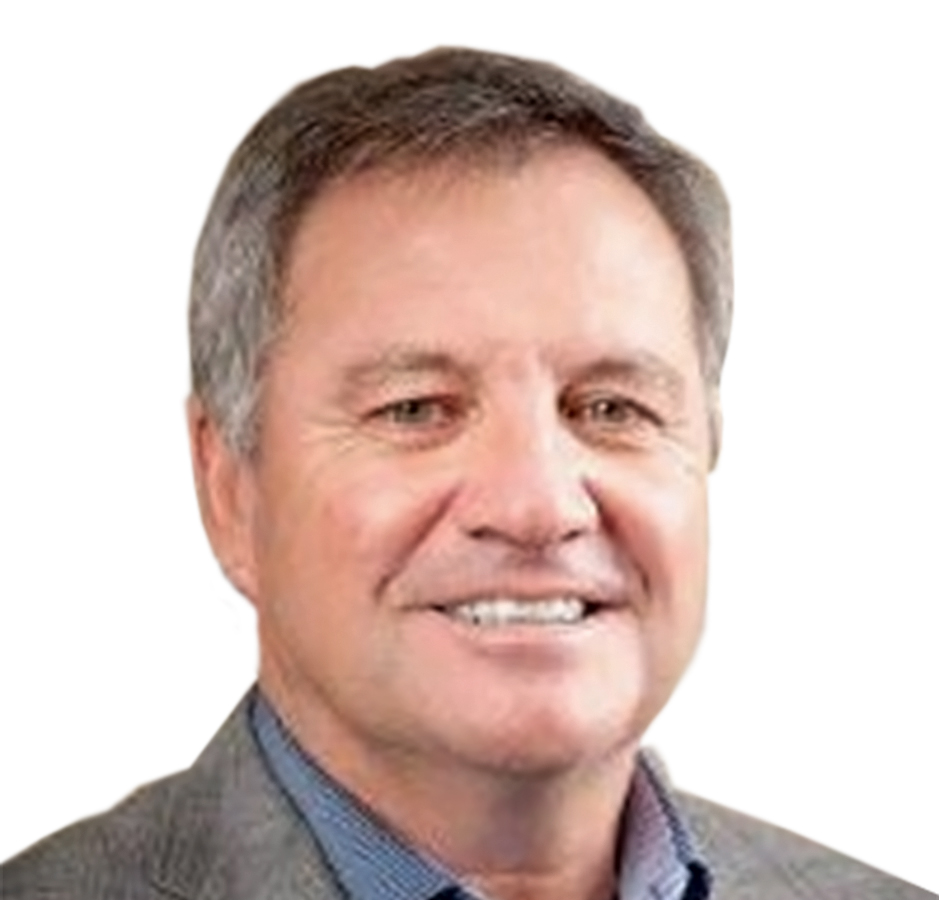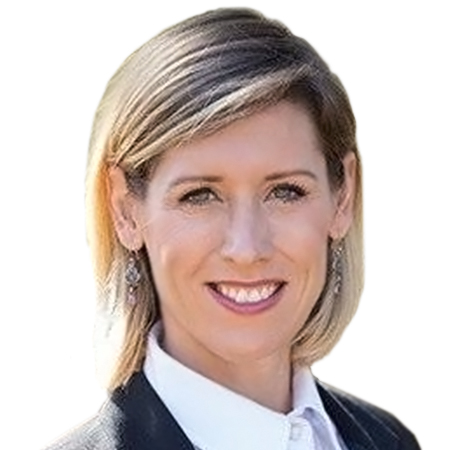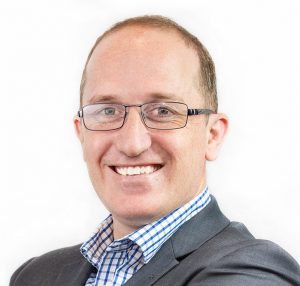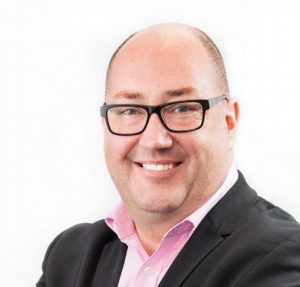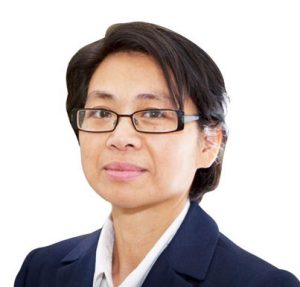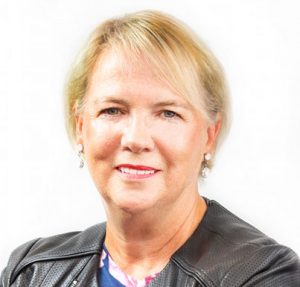It has been a busy and productive start to 2020 for the Digital Health CRC, with a forum in Melbourne for our Victorian-based Participants (pictured above) – and a workshop in Perth on telehealth – generating great ideas and discussion from very engaged and enthusiastic attendees.
Victorian Participants’ Forum
In February, we held the second forum for our Victorian-based Participants, in partnership with the Victorian Department of Health and Human Services. The objective was to provide an update on the progress being made by DHCRC, and to hear how our industry and university Participants in Victoria are engaging in digital health research projects. A total of 61 individuals (21 industry and six university Participants) came together at RMIT’s excellent facilities in Melbourne.
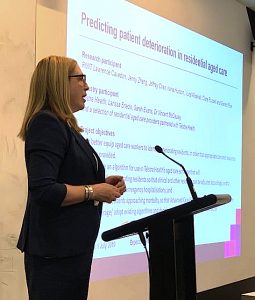
Larissa Briedis from Telstra Health briefed delegates at the Victorian Participants’ Forum.
Leads from five projects in the execution phase gave an overview about their projects and some of the lessons learned in navigating the DHCRC project development process. A further six industry Participants gave overviews of concepts still under development or close to execution.
Professor Tim Shaw, DHCRC’s Director of Research and Workforce Capacity, and one of our Flagship Research and Education Directors (FREDs), Professor James Boyd from Curtin University and La Trobe University, provided an update on DHCRC’s Flagship programs, inviting engagement on these and calling out to Participants to join forces on larger, high-impact projects.
Donna Price, Senior Vice President with our USA-based industry Participant, HMS, provided a deep dive into the art of the possible for population health management once there is access to person-level, comprehensive health and social behaviour data.
The day provided an opportunity for the CEO of DHCRC, Dr Victor Pantano, to introduce recently appointed Board member Dr Megan Robertson. Megan, who is Director of Research at St Vincent’s Hospital, Melbourne, and works as a Senior Intensive Care Specialist at Epworth HealthCare (Richmond and Freemasons), is one of our two Victorian-based Board members.
On behalf of the DHCRC Board and fellow Victorian Board member, Professor Priscilla Rogers (who was overseas), Megan emphasised the commitment of the Board to supporting all Participants to get maximum value from their investment in our CRC.
Dr Robertson and Associate Professor Kate Burbury, Consultant Haematologist at the Peter MacCallum Cancer Centre, jointly (and expertly) helped facilitate the day, ensuring Participants were given the opportunity to ask questions of Dr Pantano and all the speakers.
Some of the themes emerging from the open and friendly discussions included the need for more co-design opportunities involving patients, carers and families, particularly in the areas of navigation and cross-organisational and long-term care planning; research to inform consistency of data presented for specialists; and a need for Participants to cluster projects around high impact, scalable research projects.
Slides from the day are accessible for DHCRC Participants via the Members Portal on our website. If you require help to access the Members Portal, please contact Nicole Phelan at info@dhcrc.com.
For further information on the Victorian Participants’ Forum, please email Isobel Frean at isobel.frean@dhcrc.com.
Telehealth Workshop
Also in February, another of DHCRC’s FREDs – Professor Suzanne Robinson from Curtin University – hosted our very successful Telehealth Workshop in Perth. The event ran over two days, and brought together Participants from across Australia to meet and discuss areas of need for telehealth in rural and remote settings.
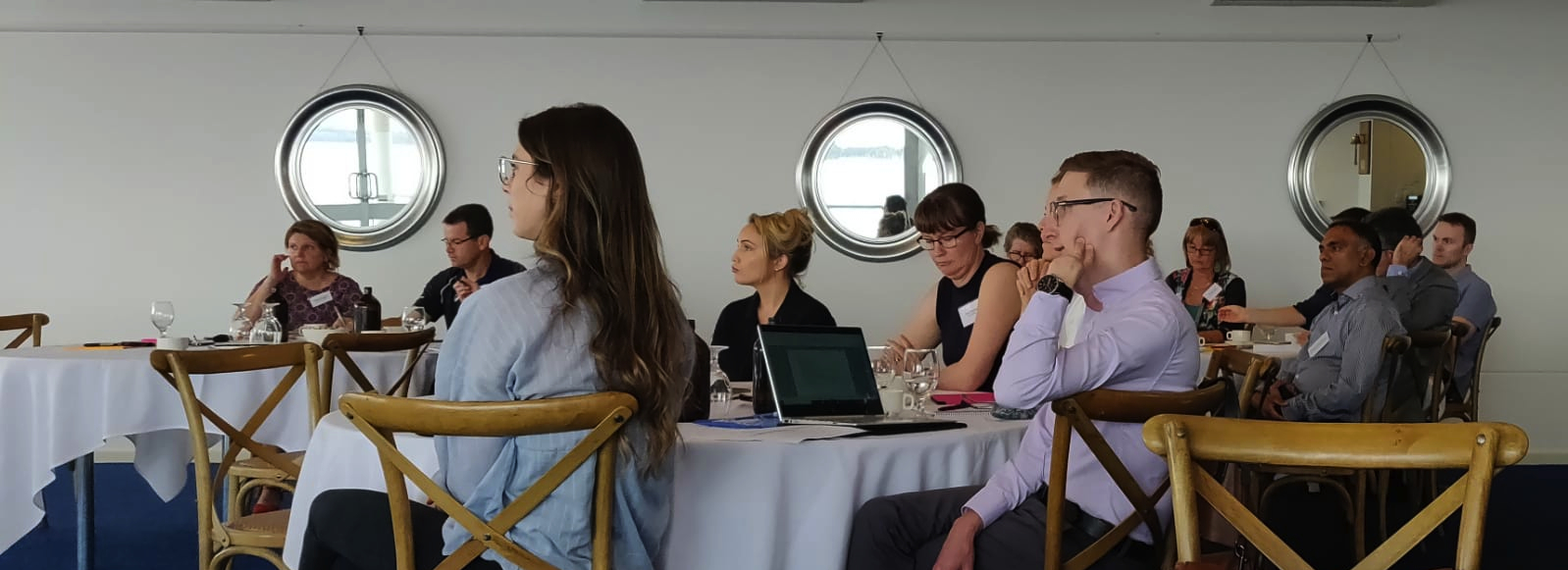
Participants at Digital Health CRC’s Telehealth Workshop.
We were very pleased to welcome DHCRC Board member, Professor Neale Fong, to the Workshop, particularly given his extensive experience in healthcare and his current role as Board Chair of the WA Country Health Service.
Participants heard presentations from Professor Anthony Smith from the University of Queensland’s Centre for Online Health (who spoke on telehealth research and busted some of the myths around telehealth); Dr Silvia Pfeiffer, CEO of Coviu Global (who spoke on artificial intelligence in telehealth, as well as Coviu’s work in the telehealth space); Professor Neil Boudville, Nephrologist at St John of God Hospital (who provided a clinical perspective on the experience of using telehealth and what it offers to clinicians and patients); and Ellen Harrison RN, Senior Vice President, Market Strategy & Consulting at Eliza Corporation (HMS), who provided a video update on HMS’s work in population health management and Eliza’s Health Engagement Management Solution.
Attendees at the workshop not only explored the barriers that currently exist for implementing and accessing telehealth, but also considered how these could be addressed and what the future of telehealth looks like.
Through engaged and productive discussions, they considered where telehealth and digital health could have the highest impact, and they started making plans for how collaboration through DHCRC could support some exciting new projects in the area.
At the end of the two days, a number of projects were at the stage where they will be worked up by key people across the University of Queensland, Curtin University and the University of Notre Dame Australia; the WA Country Health Service; the WA Primary Health Alliance; and Coviu.
This is a great outcome, and we look forward to working with these Participants to bring the projects to fruition.
For further information on the Telehealth Workshop, please email Kirsten Jackson at kirsten.jackson@dhcrc.com.
A big thank you to those who hosted our events, and also to the many Participants and other stakeholders who attended them.
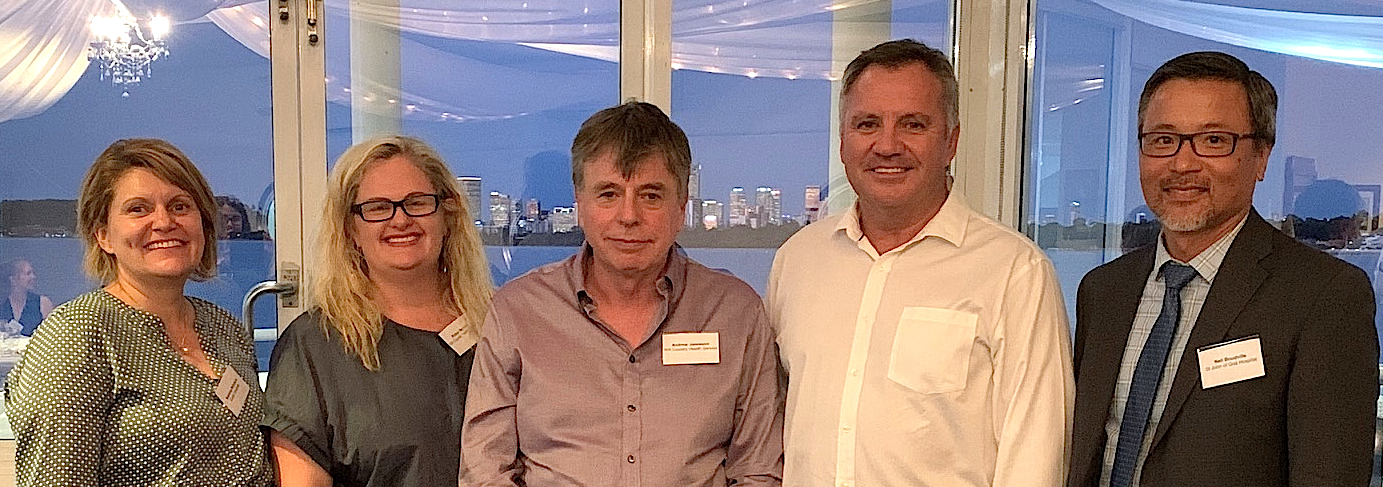
From left to right: Professor Suzanne Robinson, Robyn Sermon (WACHS), Dr Andrew Jamieson (WACHS), Professor Neale Fong and Professor Neil Boudville at Digital Health CRC’s Telehealth Workshop.






